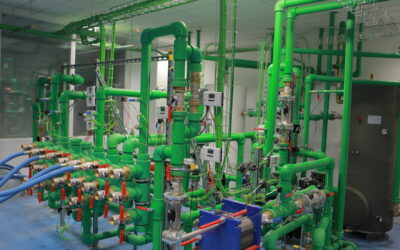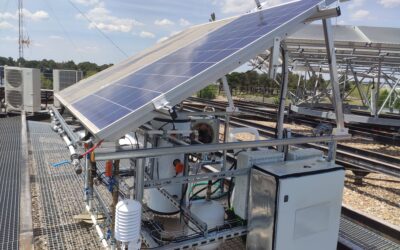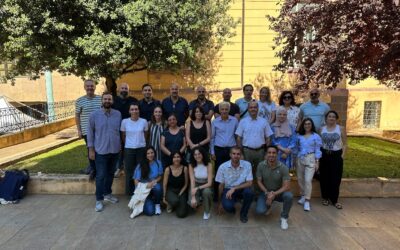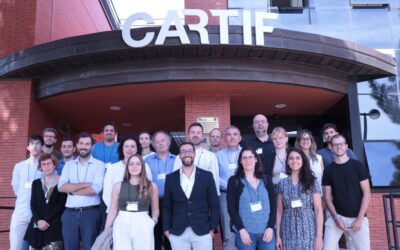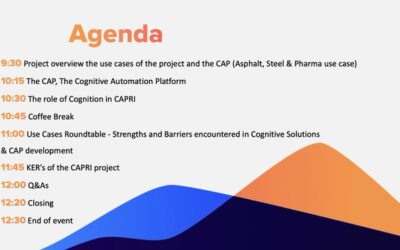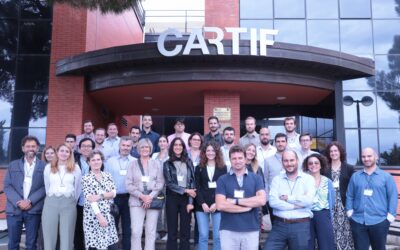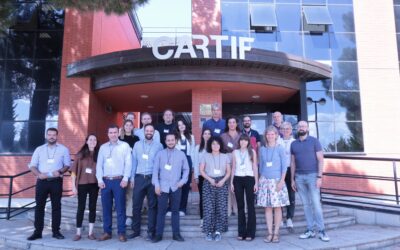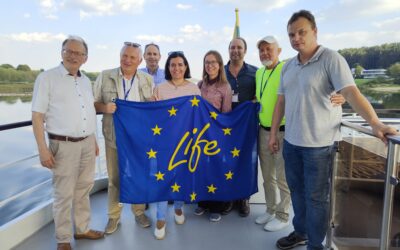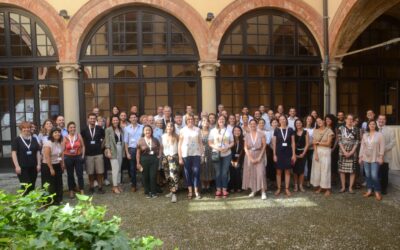Strategic Missions
PROGRAMMES R&D
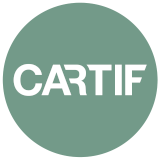
PROGRAMMES R&D
Strategic Missions
Description
It is a program of aid to cooperative R&D projects (fundamentally, Industrial Research) of great dimension and strategic nature aimed at solving concrete and relevant challenges for Spanish society.
For each of the five proposed “Science and Innovation Missions” there are three or four specific areas for improvement that limit the proposed global challenge.
The projects must have objectives aimed at solving one or more of these areas for improvement, and additional complementary objectives may be proposed, provided they are consistent with the selected mission.
The company must establish three quantitative indicators that reflect the general results of the project objectives. The degree of compliance with these three indicators will modulate the amount of aid finally received.
The following direct costs of execution are admitted: personnel costs, instrumental costs and inventory material, costs of contractual research, technical knowledge and patents acquired at market prices, general expenses and additional operating expenses that derive directly from the project and expenses of the auditor’s report.
| Grandes empresas | PYMEs | |
| CALL | MAX. 60M€ | MIN 10M€ |
| CONSORTIUM COMPOSITION | Leading partners: large Company, at least 1 SME | Leading a médium size Company, only SMEs eligible |
| CONSORTIUM SIZE | 3-8 (2 autonomous) | 3-6 (2 autonomous) |
| BUDGET | MIN 5M€ – MAX 10M€ | MIN 1,5M€ – MAX 3 M€ |
| ALLOCATION | LAST ANNUITY >= 20% | LAST ANNUITY >= 20% |
| SUBCONT ORG.INV | >=20% | >=15% |
| WEIGTH OF THE ACTIVITIES | IND. RESEARCH >= 85% | IND. RESEARCH >= 60% |
| DURATION | 3 or 4 YEARS | 2 or 3 YEARS |
| EJECUCIÓN (fecha fin) | 2020,2021, 2022 and/or 2023 (31 Dec) | 2020,2021 and/or 2022 (31 Dec) |
CARTIF participation
In February 2020 the first call of the call is launched with the intention of replicating it every two years.
The Center, thanks to the extensive experience gained in R&D, has the capacity to tackle the missions, especially the objectives included in the first four missions: clean energy, intelligent mobility, sustainable agri-food and new industry.
Program summary sheet
Summary file in PDF format:
DownloadThematic blocks:
The projects supported with “CDTI Missions” must be multidisciplinary, accommodate different technologies and sectors, and incorporate the latest scientific-technical trends and challenges.
The challenges posed by the Program are embodied, under the cross-cutting umbrella of the fight against climate change and sustainability, in five areas of development or “CDTI Missions” proposed by the CDTI:
Safe, efficient and clean energy for the 21st century
Short description:
Promote the decarbonisation of the Spanish economy to drastically reduce the emission of polluting gases (C02, N02, etc.), as well as the energy dependence on fossil fuels in Spain by investing in R + D in renewable and sustainable energy.
Areas for improvement
- Technological bases (pilot validated in the laboratory) to significantly reduce the cost of generating electrical energy from renewable sources.
- Technological bases (laboratory validated pilot) to significantly reduce the cost of stationary energy storage from renewable sources, regardless of the storage vector used.
- Technologies for the integration of renewables through the development of a more efficient, flexible and intelligent energy network, which allows better management of demand peaks through intelligent systems, as well as better management and integration of prosumers in the networks.
Smart and sustainable mobility
Short description:
Facilitate the evolution and transformation of the transport sector in a broad sense based on sustainability, decarbonisation and the drastic reduction of emissions, with special attention to aspects such as autonomous mobility and electro-mobility and new integrated management systems for inter-modal transport that complement the mentioned technologies, as well as new urban or interurban mobility systems that can coexist with the traditional ones.
- Obtain a functional prototype in relevant environment (TRL 5) of autonomous vehicle (equivalent to class 3 or 4 in autonomous cars), as well as infrastructure and communication management systems for autonomous vehicle parks, regardless of the sector.
- Significant improvement in energy density and cost of energy storage systems in electric vehicles.
- Development of advanced recharging systems and infrastructures for vehicle parks of all kinds.
- Elimination or reduction of emissions from all types of vehicles and promotion of mobility models that contribute to this objective.
Promote a large sustainable and healthy agro-food sector
Short description:
Convert the Spanish agri-food sector into a source of innovation capable of facing the challenges of climate change and actively contributing to a healthy diet with less environmental impact.
- Promotion of sustainable agriculture that improves crop yields, reduces water and nutrient consumption, as well as phitosanitary.
- Development of plant varieties adapted to the challenges of climate change, and resistant to emerging pests.
- Sustainable and lower environmental impact development of functional products and ingredients that contribute to reducing the incidence and morbidity of preventable diseases with a high social impact related to diet.
Boost Spanish industry in the industrial revolution of the 21st century
Short description:
Development of advanced research in areas that enable disruptive news for the industry that have a transversal and high impact on its sustainability and generate greater competitiveness and efficiency.
- Developments for an industrial production oriented to personalization, total quality and high productivity, which adequately integrates robotic systems and human workers.
- Protection of industries that incorporate innovations based on interconnected and susceptible of attacking information systems.
- Developments for a sustainable and efficient industrial production in all the links of the chain (raw materials, intermediate products, final products and waste) that guarantee effective recycling and recovery systems for industrial waste.
Give a sustainable response to diseases and needs derived from aging
Short description:
Develop ambitious R&D initiatives that allow the Spanish health technology industry to contribute to a sustainable response to functional problems, dependency and fragility derived from the aging of Spanish society, while allowing growth, being more competitive and reinforcing the leadership position of Spanish healthcare.
- Develop diagnostic methods aimed at the early identification of diseases derived from degenerative, non-tumor processes, typical of aging, in order to be able to modify their natural history and delay the disability derived from their evolution.
- Advance in the treatment of diseases of high impact on society derived from degenerative, non-tumor processes, typical of aging, including the development of health technologies, new equipment and / or elements to support the patient that allow offering alternatives to those with options limited or non-existent therapeutics, as well as those technologies that allow reducing or delaying the degree of dependency.
- Monitoring, follow-up and management of degenerative, non-tumor processes, typical of aging and the needs of the frail elderly population, relying on ICT (digital health), with intelligent use of data.
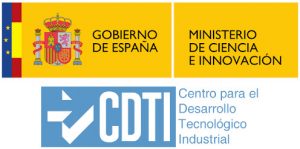
Responsible
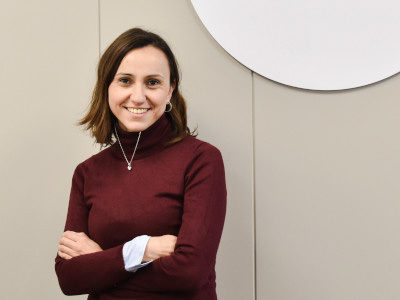
Irene Hompanera Velasco
Programs Department
Related projects
Test bench for water-to-water heat pump
technological offer Test bench for water-to-water heat pumpDescriptionCARTIF has a test bench for water-to-water heat pumps with a capacity of up to 100 kW thermal with 4 or 6 pipes. The installation allows for the adjustment of both temperatures and flow rates to the...
Test bench for fv-t collectors
tECHNOLOGICAL OFFER Test bench for FV-T collectors DescriptionCARTIF has a test bench for FV-T photovoltaic thermal hybrid solar panels, that includes the monitoring and regulation systems to be able to test its functioning and obtain test curves from a global...
NATMed project holds its second regular meeting in Sassari, Italy
NATMed has held on 26 and 27 September its second regular meeting at the premises of the University of Sassari (Italy). The aim of this session was to evaluate the profess of the project, in particular the development of the Case Studies and the Nature-based Solutions...
The WalNUT project consortium meets at CARTIF to analyse the status of nutrient recovery
The WalNUT project consortium met on 27 and 28 September at the facilities of CARTIF for its regular M24 meeting. During the meeting, the partners had the opportunity to meet in person for the first time to further discuss issues related to nutrient recovery. The aim...
CAPRI project holds final meeting in open webinar to discuss the role of cognition and its implication
CAPRI is holding its final project meeting on 28 September in an online session open to the public. The event will feature a presentation, overview and success stories of the project, to put into context those interested in the proposal, and will share the results and...
DigiBUILD project holds its 5th regular meeting at CARTIF to generate the Data Lake through its pilot buildings
DigiBUILD held its 5th regular meeting on 21 and 22 September at the facilities of the CARTIF technology centre. The aim of this session was to collect the data obtained from the different pilot buildings to jointly generate the Data Lake with which the aim is to...
BUILDSPACE holds its first plenary session at CARTIF to discuss the user interfaces of the project’s tools and platform
On 19 and 20 September, CARTIF hosted the BUILDSPACE project consortium for its first plenary session. The partners, after their launch meeting held last February in Athens, met again at the technology centre's facilities in order to review the status of the...
RURACTIVE
RURACTIVE encourage a just and sustainable transition of rural areas through intelligent solutions, lead by the community, tailor-made, based on the local and inclusive inside the multi-stakeholder rural innovation ecosystems at 12 pilot areas (Dynamos, Ds).
LIFE NEXUS project holds a workshop in Lithuania about generate mini-hydropower in urban water networks
More than 30 participants met on 12 and 13 September in Kaunas (Lithuania) to discuss mini-hydro generation in the urban water cycle at an international workshop in the framework of LIFE NEXUS project. Representatives of water supply and treatment from Lithuania,...
RURACTIVE Project holds its kick-off meeting in Bologna to promote the just and sustainable transition of rural areas
The RURACTIVE project consortium held its kick-off meeting on 13, 14 and 15 September at the University of Bologna (Italy). These sessions have served as a meeting point for the partners to lay the foundations for the promotion of a just and sustainable transition of...
